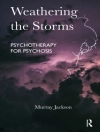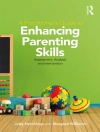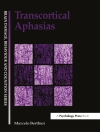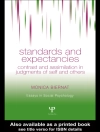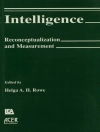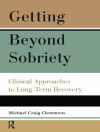The leading guide to group-based cognitive-behavioral therapy (CBT) has now been significantly revised with 70% new material, reflecting over 15 years of research and clinical advances. Too often, CBT training resources treat groups as simply an extension of individual therapy. Filling an important need, this text helps students and practitioners build essential skills for leveraging group process to optimize outcomes. Featuring sample dialogues, clinical pointers, and troubleshooting tips, the book provides practical answers to group leaders’ most pressing questions. Effective protocols for treating specific disorders are presented, with a focus on CBT techniques and group process factors unique to each type of group.
New to This Edition
*Chapters on inpatient groups and mindfulness-based CBT.
*Chapters on additional disorders: posttraumatic stress disorder and borderline personality disorder.
*Fully rewritten chapters on anxiety disorders, substance use disorders, and psychosis.
*Discussions of timely topics, such as conducting virtual groups and the growth of transdiagnostic approaches.
*Even more clinician friendly; streamlined chapters highlight ‘what to do when.’
Table des matières
I. General Principles and Practice of Cognitive-Behavioral Therapy Groups
1. Possibilities and Group Dynamics
2. Structure, Process, and Challenges in CBT Groups
3. Behavioral and Cognitive Strategies in CBT Groups
4. Mindfulness-Based Cognitive Therapy
5. Structuring and Delivering Group CBT in Acute Inpatient Settings, Emily Mac Killop & Randi E. Mc Cabe
II. CBT Groups for Specific Populations and Presenting Problems
6. Anxiety Disorders, Bailee Malivoire & Martin M. Antony
7. Obsessive−Compulsive Disorder in Adults
8. Trauma- and Stressor-Related Disorders, Jenna E. Boyd & Randi E. Mc Cabe
9. Mood Disorders
10. Eating Disorders
11. Substance Use Disorders, Tracy O’Leary Tevyaw & Peter M. Monti
12. Borderline Personality Disorder, Amanda A. Uliaszek, Tahira Gulamani, & Janice R. Kuo
13. Psychosis and Psychotic Disorders, Tania Lecomte
III. Conclusions
14. Challenges in Group Therapy
References
Index
A propos de l’auteur
Peter J. Bieling, Ph D, is Professor in the Department of Psychiatry and Behavioural Neurosciences at Mc Master University in Hamilton, Ontario, Canada, and Clinical Consultant for the Ontario Structured Psychotherapy Program at St. Joseph’s Healthcare Hamilton. Dr. Bieling is a Founding Fellow of the Academy of Cognitive Therapy and has written extensively about cognitive-behavioral therapy (CBT) for depression. In addition to his research activities and academic work, he is an active therapist and teacher of CBT.
Randi E. Mc Cabe, Ph D, is Professor in the Department of Psychiatry and Behavioural Neurosciences at Mc Master University in Hamilton, Ontario, Canada, and Director of the Anxiety Treatment and Research Clinic at St. Joseph’s Healthcare Hamilton. Her research focuses on anxiety and related disorders and the development and evaluation of cognitive-behavioral interventions. She has published over 160 peer-reviewed papers and eight books. Dr. Mc Cabe served as president of the Canadian Association of Cognitive and Behavioural Therapies (CACBT) and is a Fellow of the Canadian Psychological Association, the Association for Behavioral and Cognitive Therapies, and the CACBT.
Martin M. Antony, Ph D, is Professor of Psychology at Toronto Metropolitan University in Toronto, Ontario, Canada, and Provincial Clinical and Training Lead for the Ontario Structured Psychotherapy Program. Previously, Dr. Antony was founding director of both the Anxiety Treatment and Research Clinic and the Psychology Residency Program at St. Joseph’s Healthcare Hamilton. He has published over 300 scientific articles and chapters and 33 books in areas related to cognitive-behavioral therapy and anxiety-related disorders, and has presented his work widely across four continents. A Fellow of the Royal Society of Canada, he is past president of the Canadian Psychological Association and the Association for Behavioral and Cognitive Therapies.



